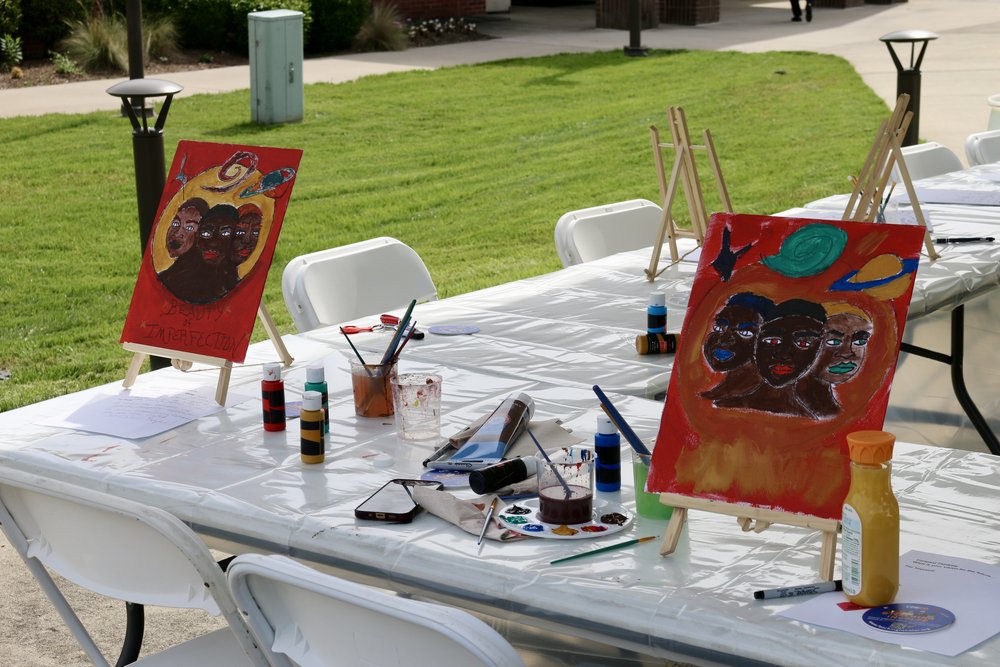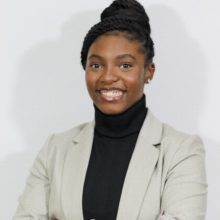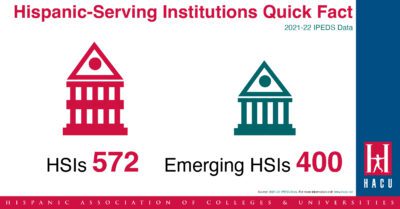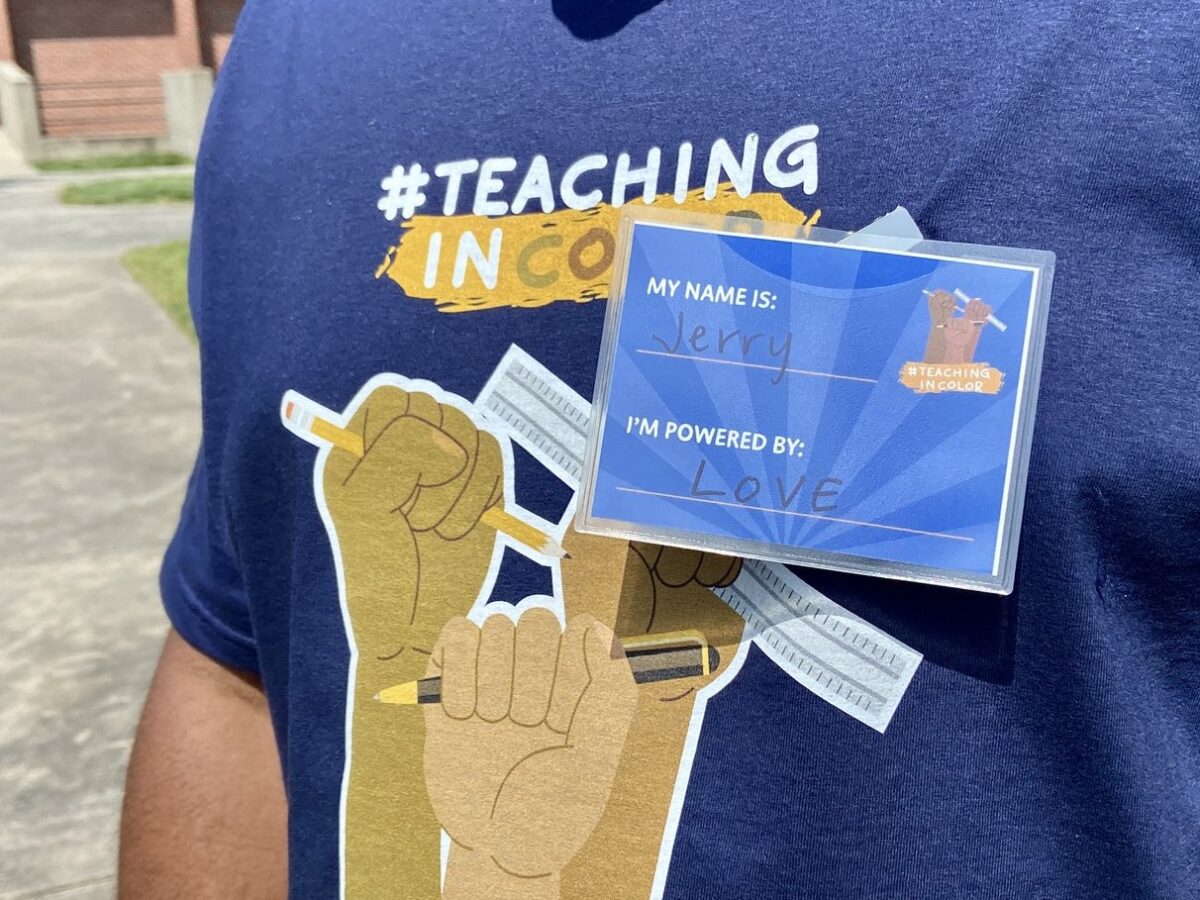
|
|
The Center for Racial Equity in Education (CREED) hosted its 2023 #TeachingInColor Summit and Fest in April at Durham Technical Community College. Attendees at the second annual event encouraged each another to center the ideals that drive their passion for education, such as belonging, equity, and community.
The summit began with a welcome from CREED Executive Director James Ford and Director of Policy and Advocacy Jerry Wilson, and it was highlighted by a keynote address from Anthony Graham, the provost and vice chancellor of academic affairs at Winston-Salem State University.
Graham, who chairs the governor’s DRIVE Task Force, spoke on “Combatting ‘Sleight of Hand’ in Public Education – A Call to Action.”
He discussed how distractions are created to steer people away from the real issues in education. Graham used the analogy of magicians, who draw your attention in one direction while performing a trick in the other, to illustrate his point.
“So on the right, there are what I call the real issues and problems,” Graham said. “Things like equitable funding in our P-12 schools, teacher compensation, teacher retention, the K-12 fiscal cliff.”
On the left, he said, is the misdirection — including the false alarms raised about the widespread use of books to sexualize children, and critical race theory.
“Fabricated problems. These are not issues at all!” Graham said. “But creating them and positioning them in such a way that the general mass now believes it’s an issue.”

Graham centered his address on “The Man in the Arena,” a theme from a speech given by former President Theodore Roosevelt in 1910. In that address, Roosevelt argued it is more difficult to involve yourself in the work, or be in the arena, than to observe from the outside and critique the work and efforts of others.
Graham asked: How can you involve yourself in the work?
For attendees working in the classroom, he challenged them to find an arena beyond their school to broaden their community and educate the masses on the “sleight of hand.”
“Get in the arena,” he said.
Bookending Graham’s keynote were a series of breakout sessions.
Here’s what attendees engaged in during the first round of breakout sessions:
- “Maintaining an A+ in Equity,” led by Dr. Takeda LeGrand, used the A+ Model for Equity in Action (Awareness, Ask questions, Accountability, Achievement) to analyze current education policies and to practice applying this model to various settings and roles.
- “Family Engagement,” led by Dr. MariRosa Rangel of Wake County Public Schools, discussed culturally responsive strategies to equitably engaging with diverse families about their children’s education.
- “#TeachingInColor Town Hall,” led by Dr. Jerry Wilson, engaged with attendees to highlight the issues that are keeping them in the field but also driving them away. Conversations were also held about what educators of color need to feel supported and to build community.
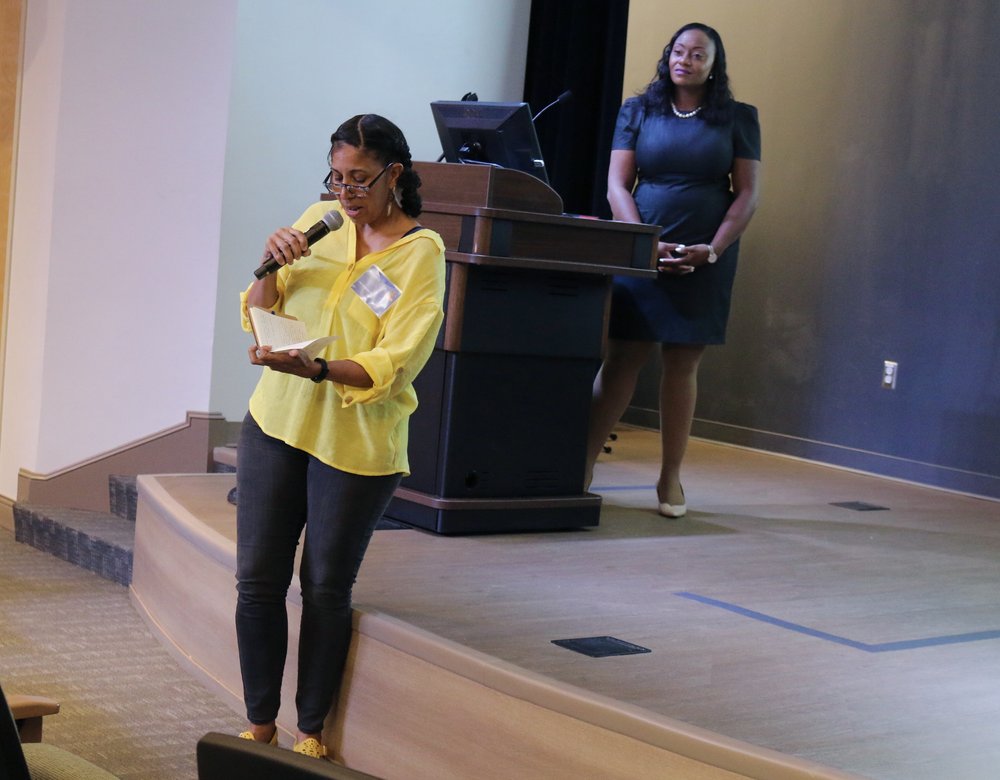
Here’s what attendees engaged in during the second round of breakout sessions:
- “Unpacking the Concept of School Belonging,” led by Dr. DeLeon Gray of Black & Belonging, focused on the impact that cultivating a sense of belonging and community can have on student motivation, achievement, wellness, sense of self, and social impact.
- “Can We Talk?,” led by Dr. Kimberly Crutcher, helped participants examine and distinguish between “safe spaces” and “brave spaces” for conversations about race and inequities, allowing participants to gain a research-based understanding of dialogue as a transformative tool for educational equity.
- “Estamos Aquí,” led by Mirella Cisneros and Zamantha Granados of LatinxEd, discussed the findings of their #SomosNC report and reflected on the importance of recruiting and retaining Latinx educators.
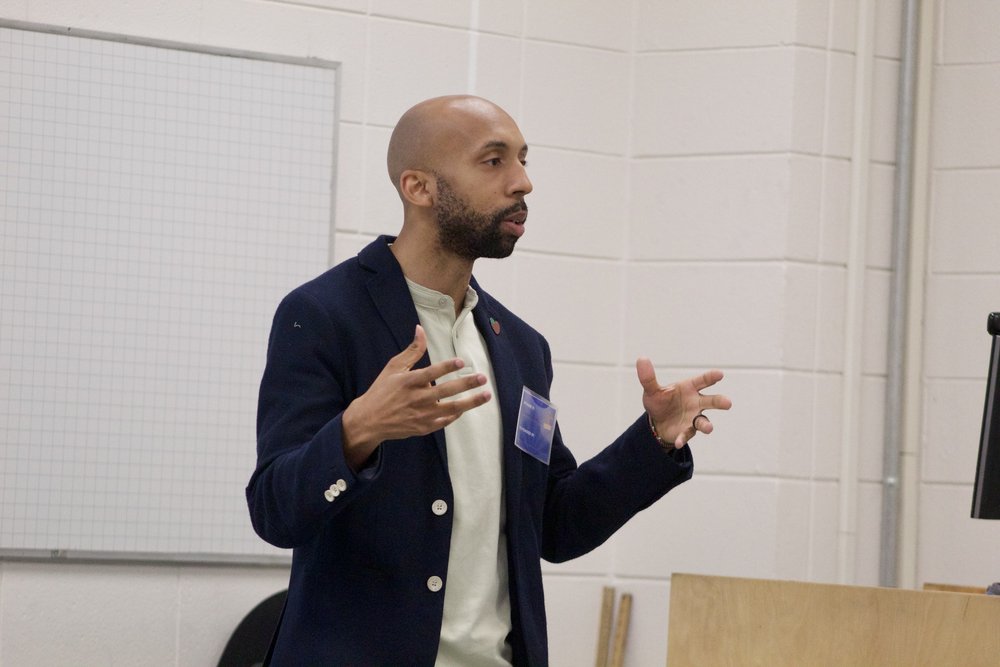
Here’s what attendees engaged in during the final round of breakout sessions:
- “Mindful Moments,” led by LA Adkins, LCSW, was a sound therapy session to promote self-care and offer an immersive and holistic well-being experience.
- “The Black Genius Framework,” led by Arssante Malone of Village of Wisdom, introduced and engaged attendees in radical frameworks and experiential learning to equip them with culturally affirming strategies to enhance the socio-emotional well-being and academic achievement of Black students.
- “Black ReSELience,” led by Kristen Hopkins of BlackSEL, demonstrated how resilience, as a core competence, is built upon social and emotional learning (SEL).
The summit portion of #TeachingInColor ended with a call to action by Ford and Wilson. After the summit was #TeachingInColor Fest, featuring food trucks, vendors, painting, live storytelling, and performances to engage attendees and celebrate diversity within education.
